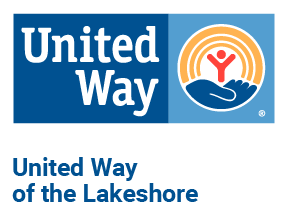More than $147M in federal funds have been allocated to support low and middle-income individuals statewide, including the ALICE population
Lansing, Mich., Oct. 13, 2022 — Leaders from three Michigan United Ways met with the Biden Administration in Washington, D.C., this week to discuss how pandemic-related federal programs are helping United Ways and their community partners statewide meet local needs, especially for those who are considered low- and middle-income and who identify within the ALICE (Asset Limited, Income Constrained, Employed) population.
Among those attending the White House briefing, titled “Communities In Action: Building a Better Michigan,” were Chris Sargent, President and CEO of United Way of South Central Michigan; Jamie Gaskin, President and CEO of United Way of Genesee County; and Eric Davis, Vice President of Community Impact United Way of Southeastern Michigan. They shared how United Way has played a key role in helping Michigan communities deal with the economic effects of COVID-19.
“In the best of times, the ALICE population faces challenges in putting food on the table or heating a home. Those challenges skyrocketed throughout the pandemic,” said Teresa Kmetz, Chair of the Michigan Association of United Ways Board of Directors. “We’re grateful to the President, our federal legislators, and our state and local leaders for helping us meet the needs of vulnerable Michigan families. There’s much more work to be done to support the ALICE population, and we appreciate the ongoing commitment our policymakers have shown.”
To date, Michigan United Ways have received more than $81 million from the American Rescue Plan Act (ARPA) and more than $66 million from the Coronavirus Aid, Relief & Economic Security (CARES) ACT. Administered by local Michigan United Ways, these funds have supported programs focused on youth, housing and rent, mental health, food security, small business support and health care access. The funds also helped maintain Michigan 2-1-1 (a free service that connects residents with programs and resources in their communities), and
ensured United Ways and other nonprofits could keep staff and continue operating when their communities needed them most.
“Partnership like this works,” said Sargent, one of the attendees. “When government, communities and nonprofits work together, we can make an incredible and positive impact in the lives of countless Americans. That’s good for them, for our communities, and for our nation. I’m eager to build on this partnership.”
Gaskin added, “We appreciated the chance to talk about United Way’s role as we partner with local government, community-based organizations, and others to manage these resources and make a meaningful difference. The administration took time to listen to our successes and hear our feedback as they seek to craft policy that lifts up vulnerable families and communities.”
“Investments like those of the American Rescue Plan Act have been measurably impactful in supporting the families and communities most impacted by the pandemic, and we are proud to continue to play a critical role in ensuring those funds are put to best use here in Southeastern Michigan,” said Davis. “We were also excited to engage in conversations around the recently passed Inflation Reduction Act and the CHIP and Science acts, and we're looking forward to continuing to work together to invest in infrastructure, manufacturing, and the long-term resilience of our communities.
In addition to receiving ARPA and CARES Act funding, several local Michigan United Ways also received funding through the Paycheck Protection Program (PPP), Employee Retention Tax Credit and Emergency Food & Shelter Program (EFSP) to ensure the ALICE population had food, shelter and other essentials.
“Together as Michigan United Ways, we’ve invested more than $147 million into our communities across the state,” said Kmetz.“This investment is essential to the ALICE community, and we must continue to fight for additional funding to support Michigan families living in crisis.”
For more information on the Michigan Association of United Ways or to find support near you, please visit uwmich.org.
About the Michigan Association of United Ways
Michigan Association of United Ways (MAUW) is a partner in developing powerful responses to current and emerging issues in local communities. The State Association provides leadership in policy influence and capacity building to affect positive change. MAUW serves approximately 35 local United Ways that represent the largest network of non-governmental service providers and service funders in Michigan, collectively raising and distributing significant resources to support local health and human service organizations.

